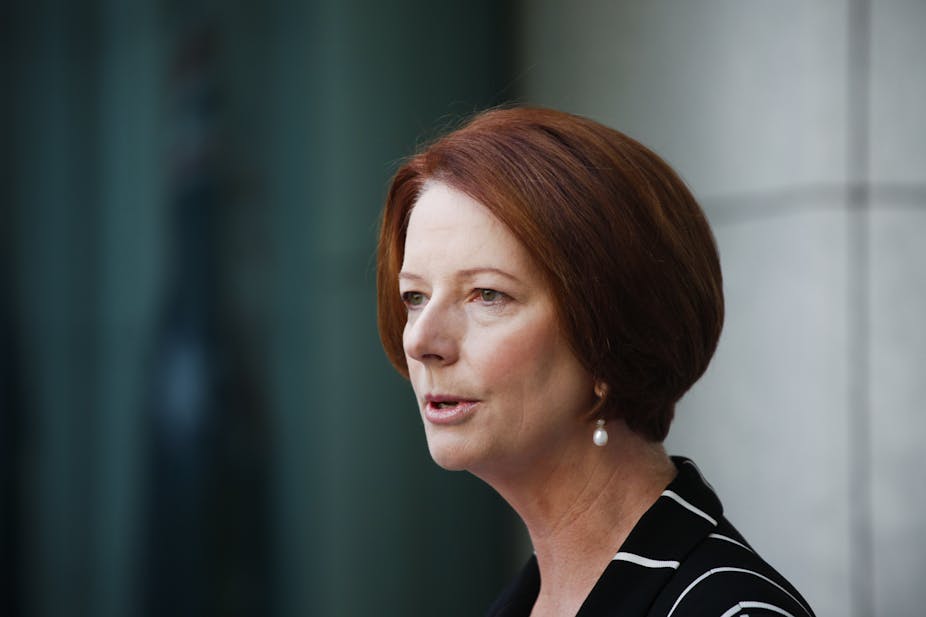Since forming government in 2010, the Gillard government has faced an uphill battle to assert its authority on the policy agenda.
Initially, this was partly due to the fact that it relied on the Greens and independents to form a minority government. But over the past few months, the government has been battling one problem after another.
The two most recent issues facing the government – involving allegations against MP Craig Thomson and speaker Peter Slipper – have taken their toll, and, crucially, altered the numbers in Parliament.
The Slipper affair injected a sense of “sleaze” into politics. Accusations about sexual harassment, in addition to allegations of misused travel allowances, led Mr Slipper to stand aside as speaker. There’s no doubt the affair caused the government to be on the back foot.
This played into the hands of opposition leader Tony Abbott who tied the affair into broader questions the coalition have been asking about the government.
In particular, questions about trust - a sore point for Julia Gillard since she deposed Kevin Rudd. The opposition has sought to paint the government as untrustworthy and incapable of making sound political decisions.
In addition to trying to counter these arguments, the government has also had to deal with the political fall-out caused by Craig Thomson’s suspension from the Australian Labor Party. Thomson will continue to represent his district as an independent.
Thomson, who has been at the centre of a Fair Work Australia investigation, had previously received loyalty and support from the Labor Party while he faced allegations of misusing union resources.
Notwithstanding the fact that Thomson’s vote is crucial for Labor’s hold onto power, the party still stood by him. His decision to now suspend his membership can be seen as Thomson repaying Labor’s support. He has, to an extent, cleared some air for the government by temporarily leaving the party.
If Thomson had decided to resign from parliament, a by-election would be called. Based on opinion polls, Labor would have lost that by-election and the Coalition would be in a stronger position to form government. But Thomson’s decision to remain in parliament as an independent safeguards Labor from a potentially humiliating loss. He will continue to support the government, so claims it has crumbled are a premature.
So, with so many challenges and potential crises to emerge, is the Labor government just swinging in the breeze? Opinion polls show that voters are just waiting to elect the coalition next election.
But having Slipper and Thomson out of the picture may actually work to the government’s advantage. First, Prime Minister Gillard no longer has to feel as though she is defending the actions of either MP. This can allow her to focus on the policy agenda, rather than allegations about unsavoury actions by others.
Second, the prime minister sought to present herself as being able to make important political decisions at her press conference. By stating that she advised Slipper and Thomson of what she believed was the appropriate course of action, Gillard has tried to snatch the political football.
But even as the prime minister ended her press conference today, questions were already being asked as to whether she should still be leader of the Labor Party. Speculation about leadership tensions will no doubt gain strength once again.
While the government has been trying desperately to deal with many challenges, Abbott and the Coalition have been able to avoid significant scrutiny of their own policies. On many occasions they have appeared to be onlookers as the government has wrestled with internal crises.
The role of the opposition was never meant to be this easy in the Australian political system.
In terms of some “good news” for the government, it has about 18 months before the next election is due. As this term of parliament has proven, anything can happen in such a short amount of time.
The problem for the government has been that just as one issue appears to have run its course, another takes its place. The question always remains: is there anything else that can go wrong?

